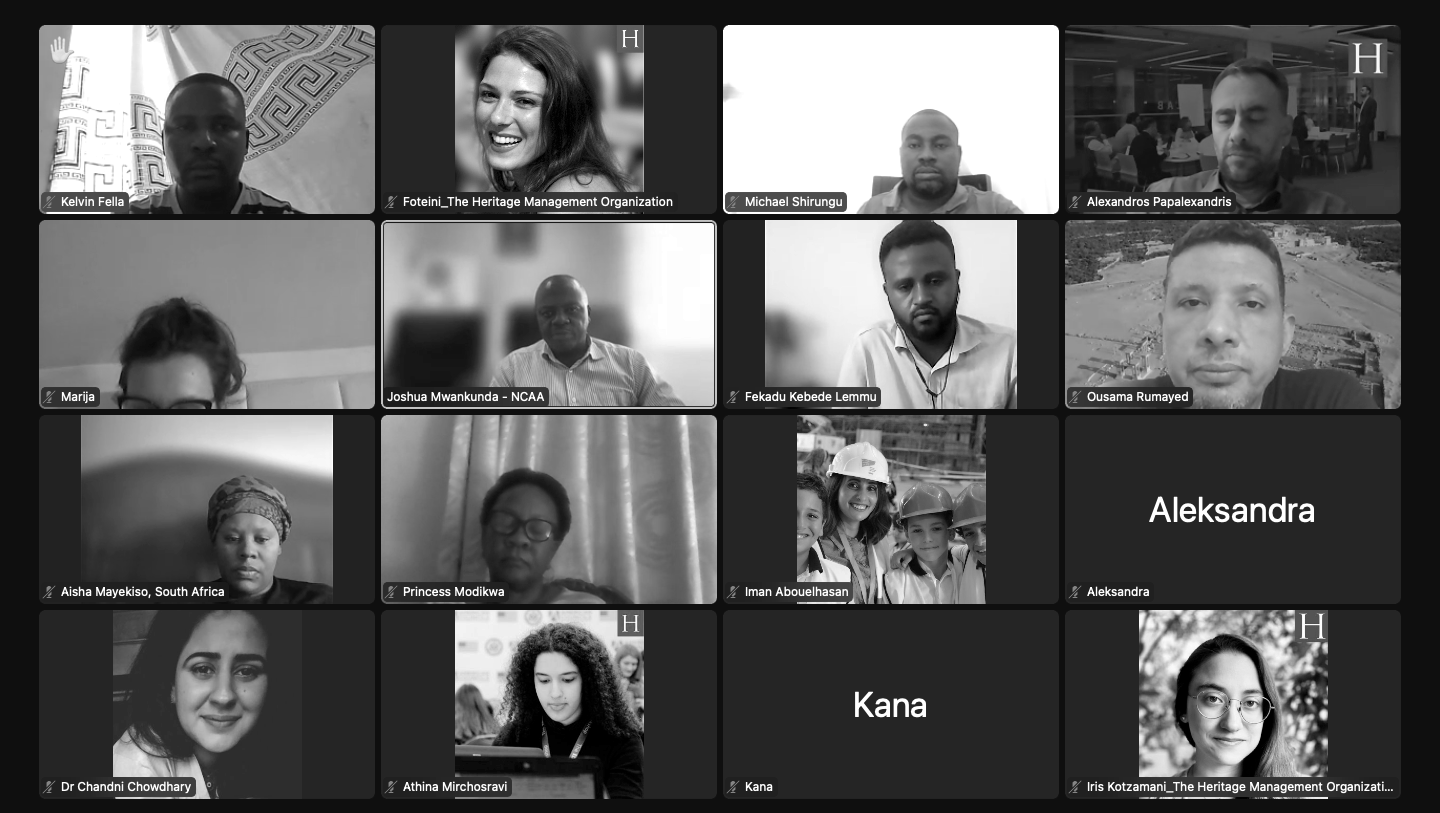: Strategy
Strategic Planning for Ethiopian Heritage Managers
Ethiopian heritage managers completed a HERITΛGE Strategic Planning for Heritage Managers workshop online in late November. The trainees consisted of heads, directors, and experts representing the regional bureaus of Tigray, Somali, Oromia, and Amhara.
The workshop was led by Dr. Alexandros Papalexandris, Assistant Professor at the Athens University of Economics, and is part of the HerMaP Africa which is supported by the Andrew W. Mellon Foundation’s Humanities in Place Program. This was the second HerMaP Africa workshop to take place in Ethiopia and focused on these specific regions with the primary goal of increasing the capacity of the local Culture and Tourism Bureaus for strategic planning.
During this 3-day training, the participants got acquainted with the notion of strategy and understood why having a strategy is crucial. They had the chance to reflect on the mission and the vision of their bureau and set up strategic goals for the future. They identified different shareholders, and they analyzed the micro and macro environment of their region, using tools such as SWOT and Porter’s analysis. Finally, they learned how to recognize critical success factors in developing and implementing an effective strategy. As a result of the workshop, participants were encouraged to set up a business plan for the Culture and Tourism Bureau of their region, in collaboration with their teams and staff members.
“As Head of the Tigray’s Culture and Tourism Bureau, I found the workshop very helpful and at the same time challenging because it intensively encouraged me to be more critical of what I am trying to develop in my region, especially now, that we are in a post-war, post-crisis period and we are trying to re-operate our office,” said Dr. Atsbha Gebreegziabher, Head of the Tigray Culture and Tourism Bureau.
“The workshop was quite informative and very participatory,” added Selamawit Getachew from the Ethiopian Heritage Authority.
About Andrew W. Mellon Foundation
The Mellon Foundation is the nation’s largest supporter of the arts and humanities. Since 1969, the Foundation has been guided by its core belief that the humanities and arts are essential to human understanding. The Foundation believes that the arts and humanities are where we express our complex humanity and that everyone deserves the beauty, transcendence, and freedom that can be found there. Through our grants, we seek to build just communities enriched by meaning and empowered by critical thinking, where ideas and imagination can thrive.
Empowering Heritage Managers: Insights from the Strategic Planning Workshop
In a rapidly changing world, the preservation and management of cultural heritage require strategic planning and effective decision-making. HERITΛGE’s latest transformative 3-day online workshop titled “Strategic Planning for Heritage Managers” took place in mid-May and brought together 14 heritage managers from Africa, Asia, and Europe, providing them with essential strategic planning skills and knowledge.
Led by Alexandros Papalexandris, Assistant Professor of Management at the Athens University of Economics and Business, the workshop immersed participants in a comprehensive curriculum. Heritage managers from Botswana, Egypt, Ethiopia, Namibia, Tanzania, South Africa, Sudan, India, Syria, and North Macedonia had the opportunity to explore a variety of strategic analysis methods and tools. They gained insights into planning and evaluating alternative strategic options, understanding the requirements of strategy implementation projects, and assessing the macro-environmental factors influencing organizational strategies.
The participants delved into the core concepts of strategy, grasped the importance of strategic planning, and acquired the skills to craft compelling vision and mission statements. Analyzing the business macro-environment, including political, economic, social, and technological factors, were skills on which the heritage managers participating focused intensely during the training. Moreover, the workshop equipped participants with the ability to identify and leverage different types of resources and capabilities to gain a competitive advantage.
Towards Practical Application: To cement their newly acquired skills, participants were divided into three groups, and each group selected a project from within their cohort for an in-depth case study. The chosen projects included the establishment of a Children’s Museum at The Grand Egyptian Museum in Egypt, the preservation of the Palmyra World Heritage Site in Syria, and the development of the Kumanovo Museum in North Macedonia. By working on these real-world projects, the participants had the opportunity to apply their strategic planning knowledge and develop practical solutions.
While the workshop concluded after three intense days, the learning journey continues. Participants will reconvene with their instructor, Alexandros Papalexandris, on May 22nd for a tutorial meeting. This session will provide an opportunity for participants to seek guidance, clarify doubts, and receive valuable feedback to refine their final projects. This personalized approach ensures that the heritage managers are supported as they progress towards implementing their strategic plans.
The workshop featured a keynote speech by Joshua Mwankunda, a distinguished professional with two decades of management experience in government services and overseas assignments. Mr. Mwankunda showcased his expertise in heritage conservation, development, tourism, project management, procurement, and engineering. He has managed successful heritage projects within the Ngorongoro Conservation Area, including the conservation of Laetoli footprints, ElA and CHIA for road upgrades, museum development, and supervised the establishment of Sub Saharan Africa’s first Geopark.


